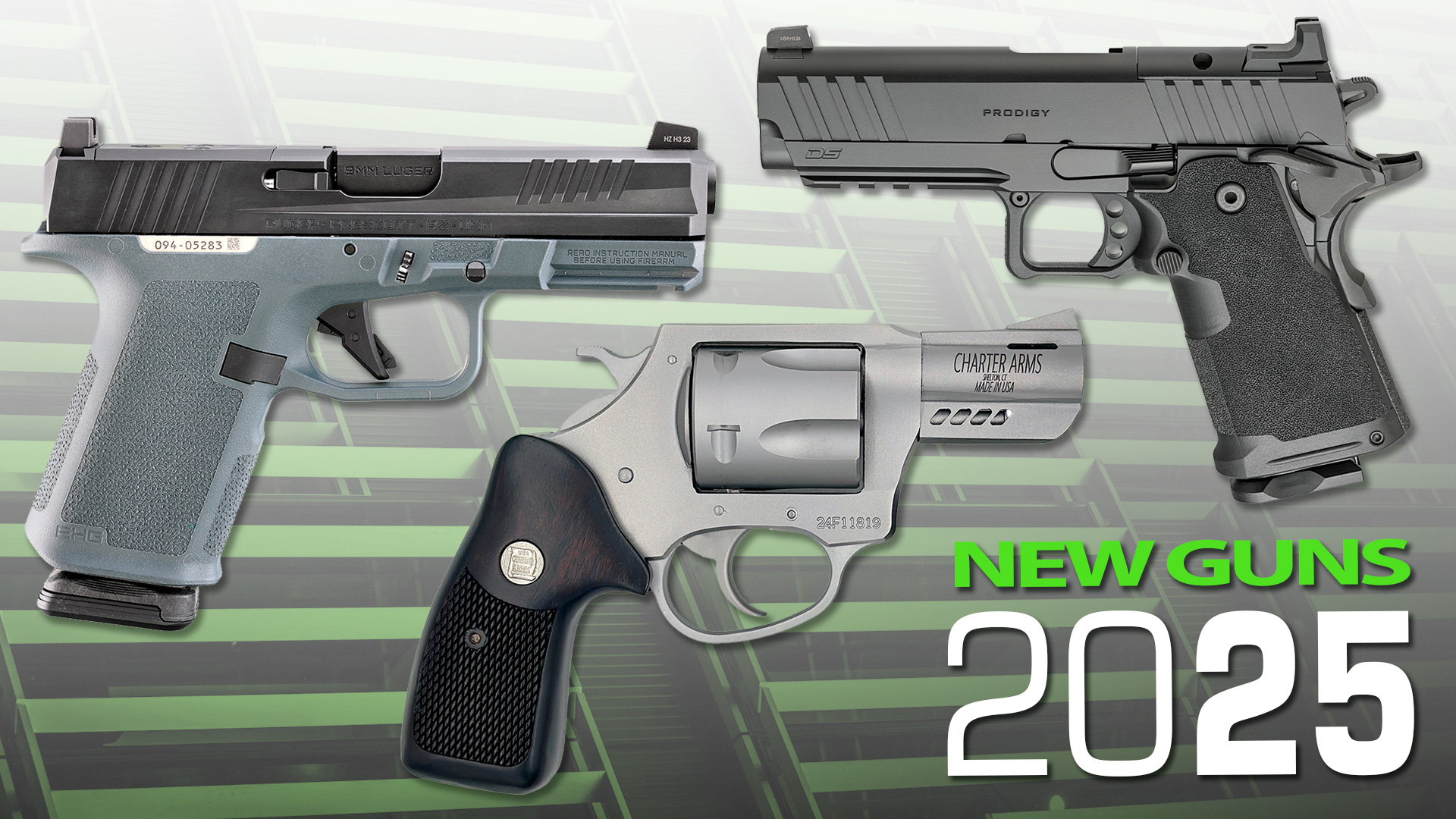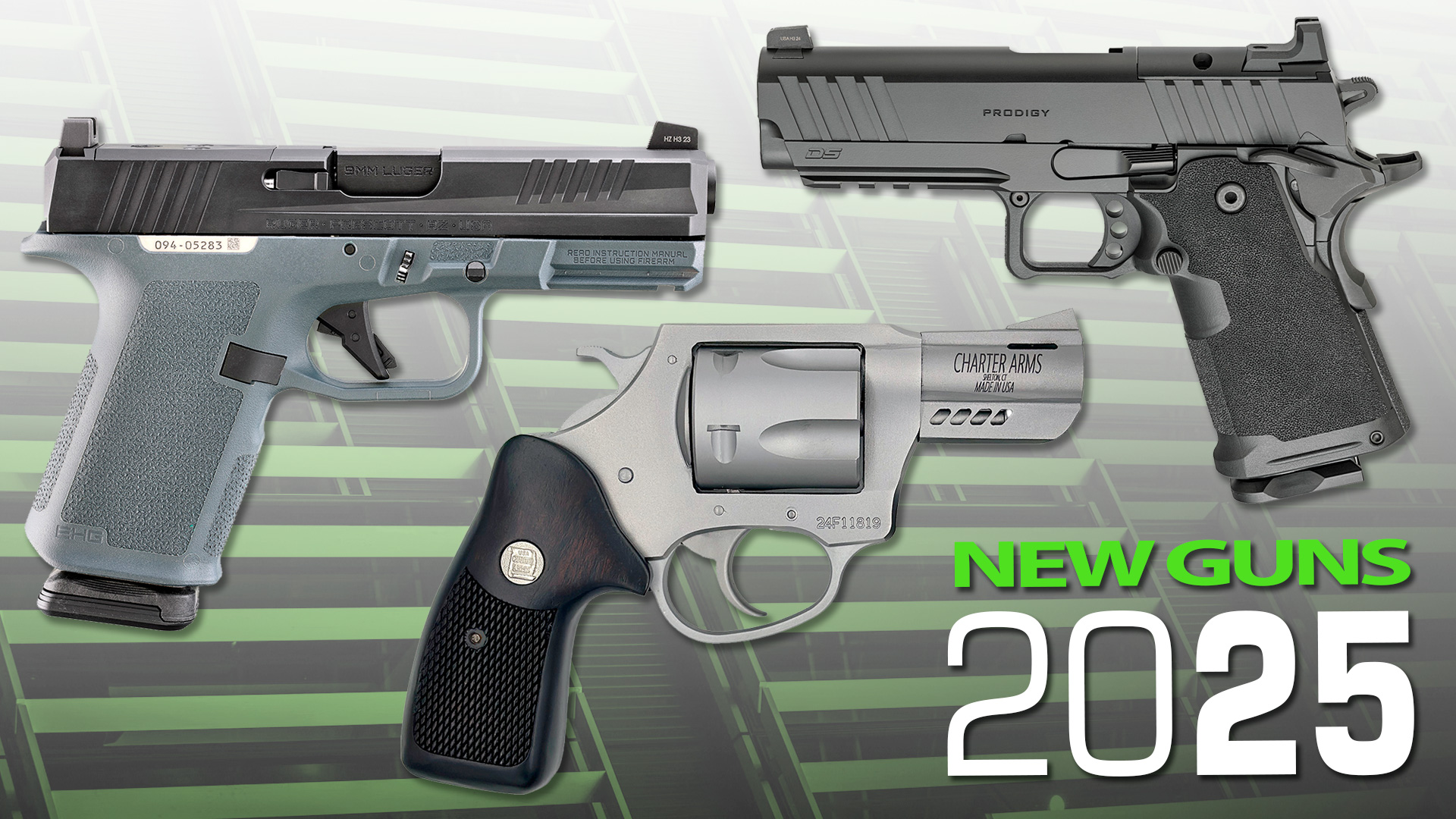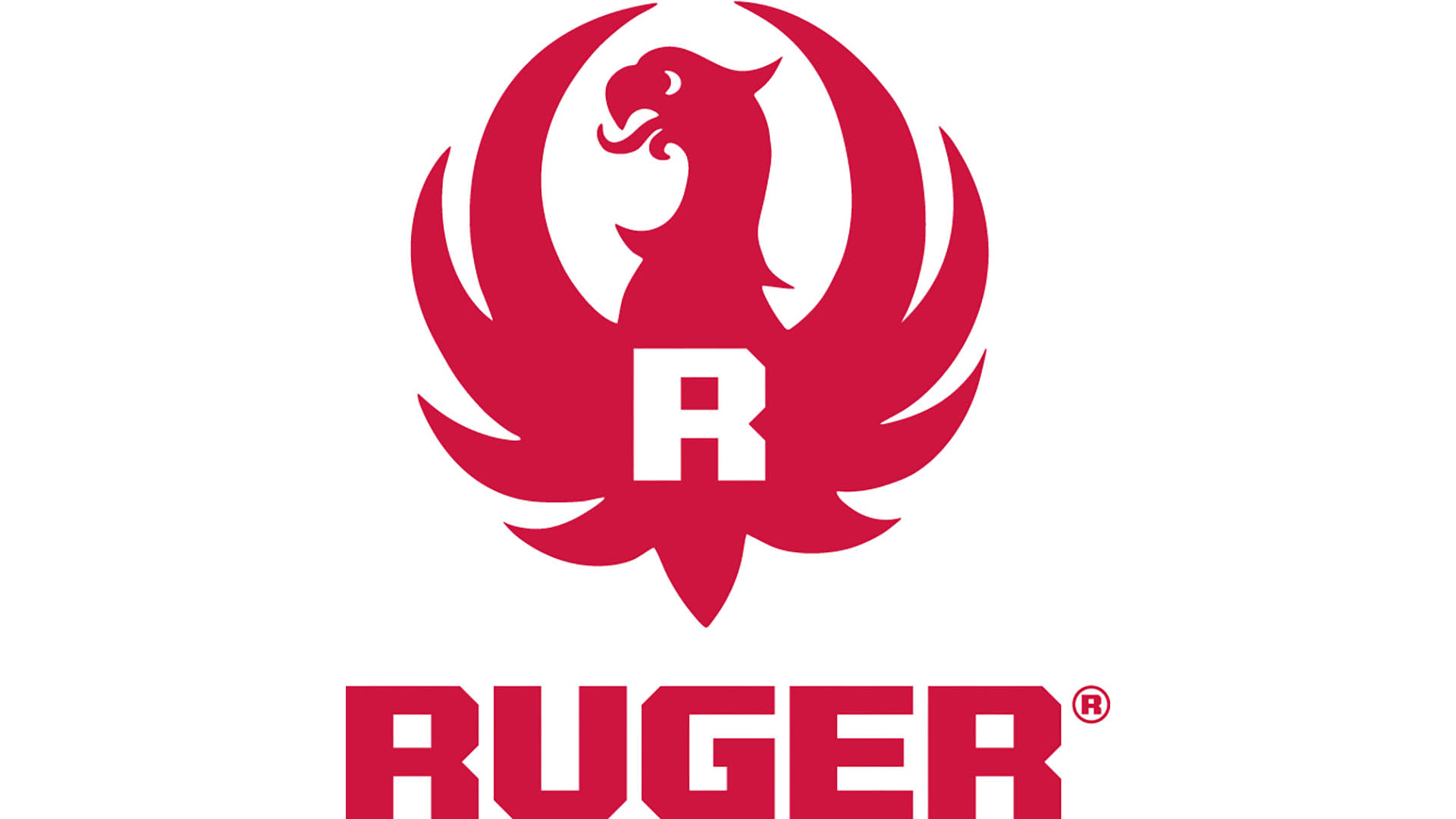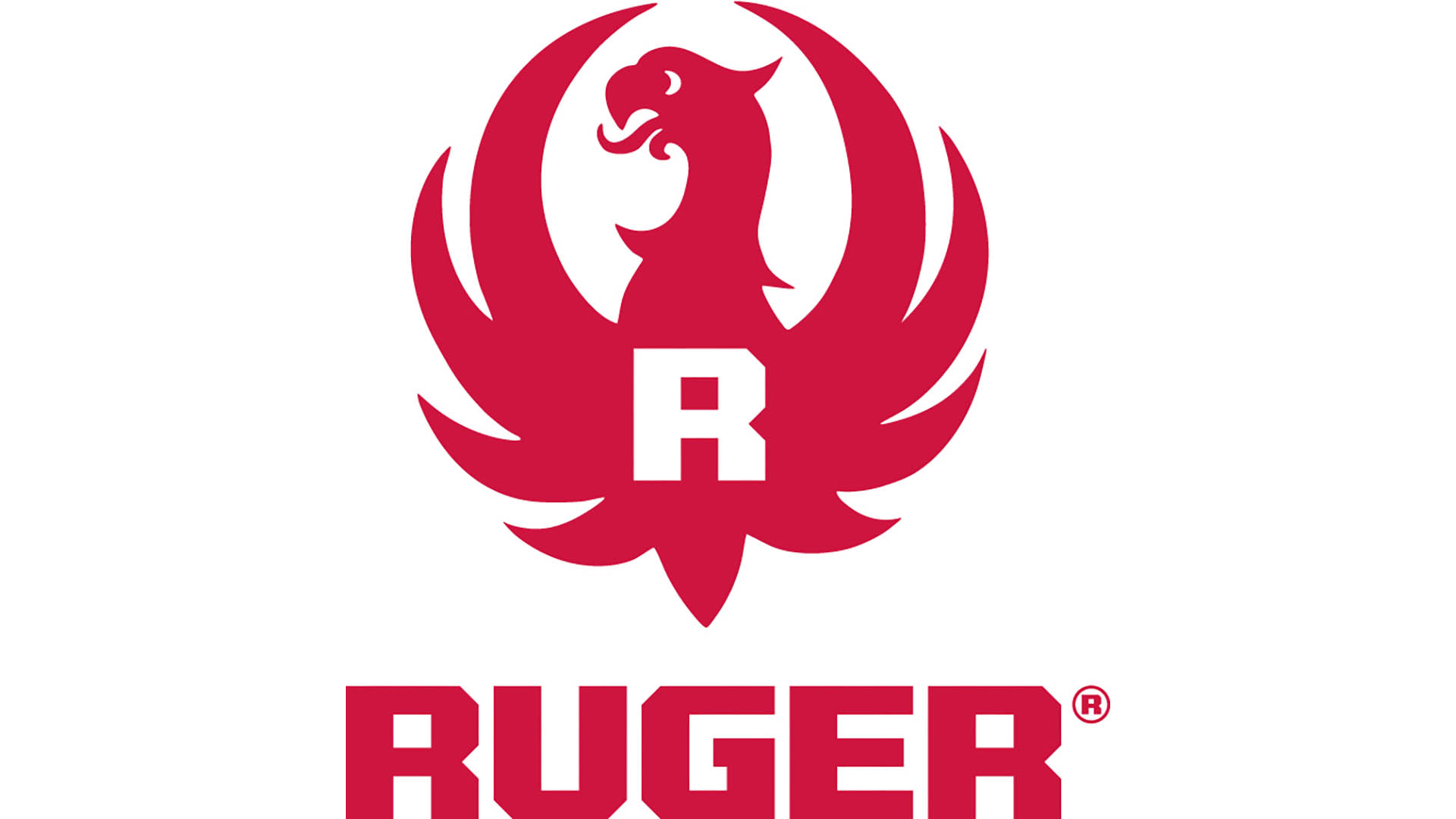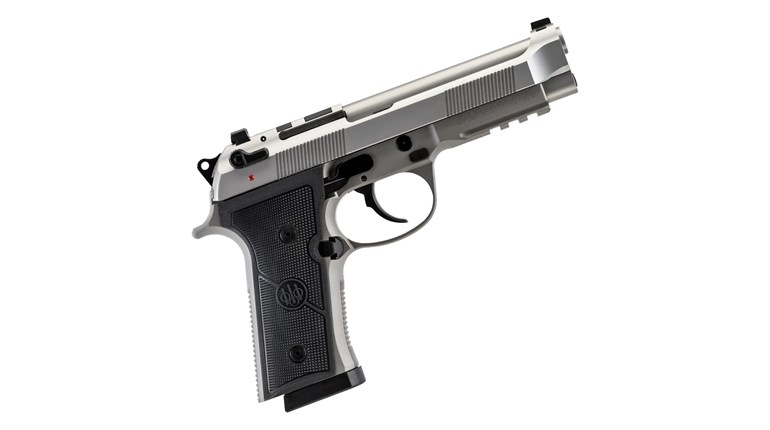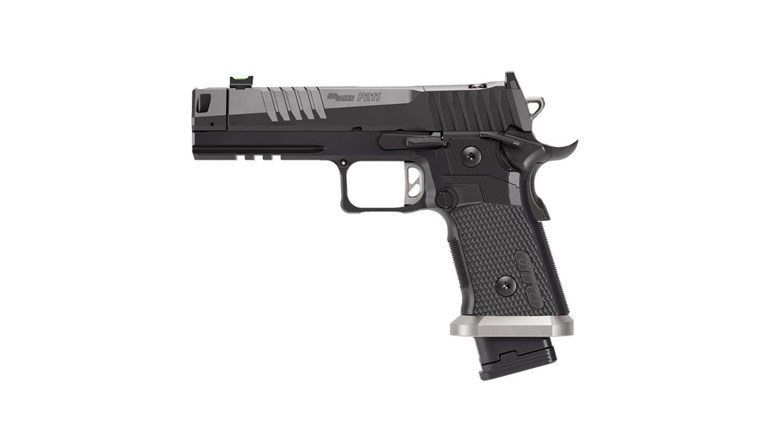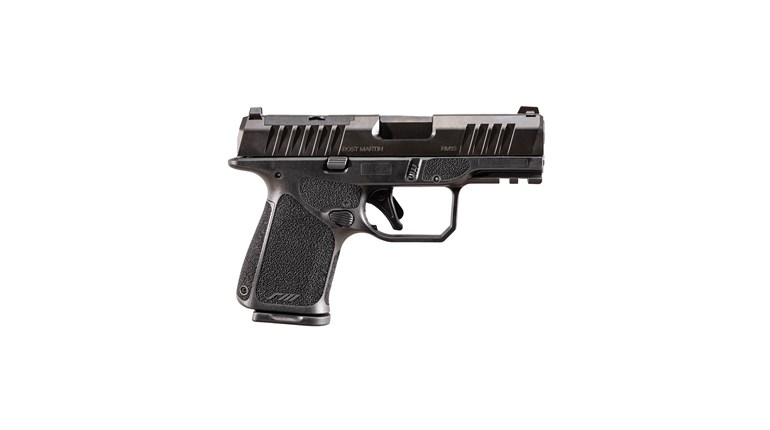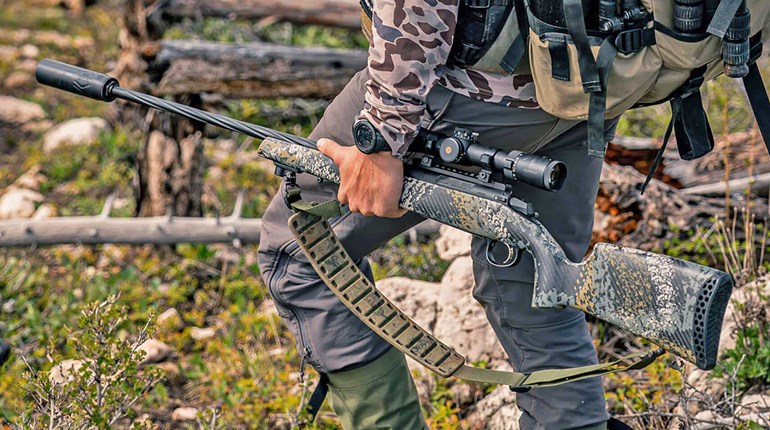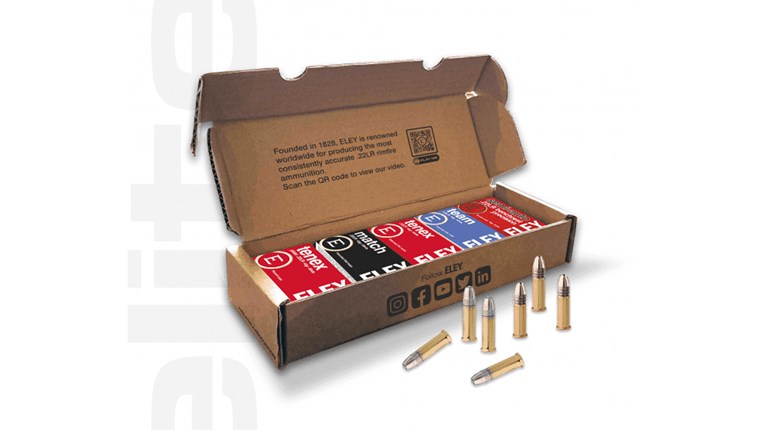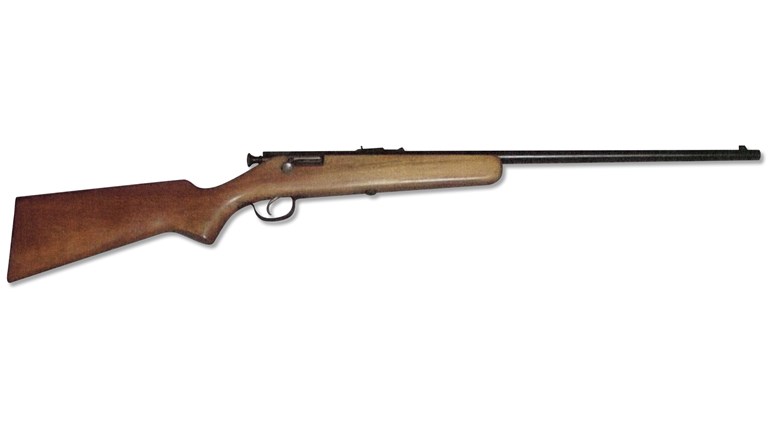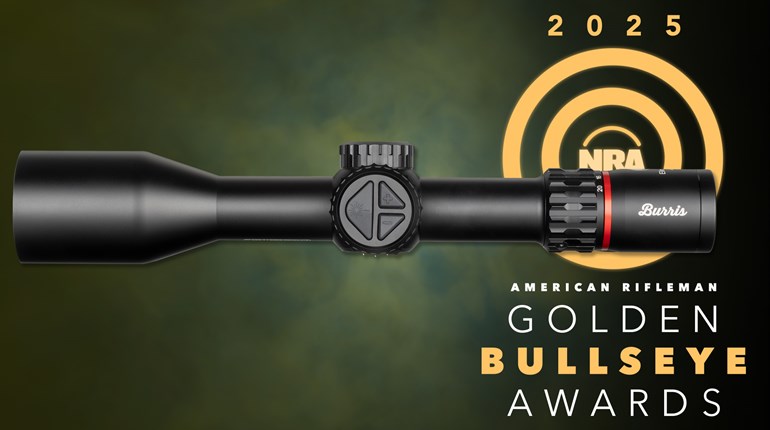
The Sarsilmaz SAR 9, shown above, is the first offering from the Turkish company's new U.S. subsidiary, designed to deal exclusively with Sarsilmaz guns sold on the U.S. market.
An imported firearm brand that doesn’t have its own U.S. distributor and instead finds itself coming in through a large importer that handles multiple manufacturers can find itself in a quandary. Since the importer has to spread its attention across multiple brands, it’s hard for them to devote much attention to anything other than selling guns. As a result, spare parts and warranty service can be tricky to obtain for these firearms.
The situation is like some ABC Afterschool Special, where all the kids are in the orphanage. However well-meaning the people running the place are, there are just too many kids and too little attention to give each one the love they need.
Sarsilmaz in Turkey, which has been manufacturing firearms since the days of the Ottoman Empire, found itself facing this exact situation, and decided to fix it in the most-decisive way possible. The company opened its own U.S. subsidiary, SAR USA, to handle the importation of its firearms. SAR would only be dealing with Sarsilmaz firearms and would be the sole point-of-contact for warranty work and source for spare parts.
One of SAR USA’s flagship offerings is the subject of this review, the Sarsilmaz SAR 9.

Designed in response to a Turkish government request for an indigenously produced pistol to fill a 110,000-unit military contract, the Sarsilmaz SAR 9 is a departure from more-typical offerings from Turkish handgun makers.
Most pistols from Turkey have been copies, license-manufactured or otherwise, of older, established designs. We’ve seen Turkish-built Beretta 92s and Cougars, CZ-75s and Walther P99s all come into the U.S. market under various noms de catalogue. What makes the SAR 9 different is that, while it obviously borrows design features from a handful of popular models, it’s an entirely new gun and not a copy of an existing model.
In its overall lines, it resembles nothing so much as a Glock slide with a carry bevel job and front cocking serrations parked atop the frame of a Heckler & Koch or Walther product, with its swoopy curves and finger grooves.

One immediately noticeable difference to the striker-fired pistols that so obviously inspired it are the prominent, ambidextrous thumb safeties. These have fairly positive detents and fall readily under the shooter’s thumb as a firing grip is achieved, like those on the 1911 or Smith & Wesson M&P. The thumb safeties lock the fire-control group in place by preventing movement of the trigger, but the Sarsilmaz SAR 9 also has the usual passive internal safeties as epitomized by Glock.
The trigger features a tab safety in the center to prevent inertial discharges should the gun be dropped onto the rear of its slide, and there’s also a bright-red insert at the top that is visible from the side when the trigger is in the forward position. Labeled a “striker status indicator,” this enables one to see at a glance whether the gun is cocked or not, even from a distance, at least as long as the side of the trigger is visible.

While the thumb safeties are ambidextrous, the magazine release is not. It is, however, reversible. The Sarsilmaz SAR 9 also bucks the trend among modern service pistol designs by not offering ambidextrous slide stops. The single-sided slide stop is prominent and easily released by the right-handed shooter’s dominant thumb, and somewhat less so by a southpaw’s trigger finger. The dustcover features a mil-spec accessory rail, what with Turkey being a NATO country and all.
The grip frame offers a pretty deluxe feature apparently swiped straight from Heckler & Koch’s premium VP9 line. While many modern pistols feature interchangeable backstraps, the Sarsilmaz SAR 9 emulates the VP9 by offering separate backstraps along with left- and right-side panels. Inside the case, the new buyer will find backstraps and side panels in small, medium and large sizes, and these can be mixed and matched until a preferred configuration is achieved.

To swap out the panels and backstraps, simply use the (included) punch to drive out the roll pin at the heel of the grip and then start playing Legos until your hand finds the Sarsilmaz SAR 9 as comfortable as a well-worn glove. Somewhat surprisingly for a gun with such explicitly martial origins, the roll pin that secures the grip panels does not double as a lanyard cutout. Not that there’s exactly a whole ton of use for a lanyard on a CCW pistol, but I just found that omission odd. The punch used to drift out the grip retaining pin is also useful for depressing the takedown button in the magazine floorplate. The proprietary mags hold 17 rounds (more on that later), and the gun ships with a pair of them.
In the box along with the punch are a plastic cleaning rod slotted to hold a patch, a fluffy swab on a twisted-wire handle intended to be used to clean out the insides of mag tubes and a little Allen-wrench-looking thing whose purpose was something of a mystery until I noticed it was the right length to reach the magazine-catch spring from above with the slide off the gun. (The manual covers loading and unloading, basic operation and field-stripping and cleaning, but is silent on the topic of changing the grip panels or swapping the mag release.)

While I had the Sarsilmaz SAR 9 apart, a process that requires dropping the striker on an empty chamber, I noticed that the lockwork is so similar to that of a Glock as to make me wonder if the trigger bars could be swapped. The biggest noticeable differences inside are the axle of the thumb safety passing behind the magazine well and the fact that the front and rear slide rails are part of unitary chassis-like structure, rather than being separate molded-in nubbins like they are on the Glock.
I was interested in seeing how the gun ran, as its performance in various grueling acceptance trials has been touted in promotional materials. So, upon receiving the test sample, I lubed the gun per the instructions in the manual and set to firing the thing at the local range pretty much every weekday morning for the next three weeks. Over the course of that time, the gun racked up 1,155 rounds without further cleaning or lubrication while experiencing only a single malfunction: Round number 1,141 was a 124-grain +P Speer Gold Dot that hung up on the bottom edge of the feed ramp, which was by then so filthy you could plant crops on it.
Most interestingly, a large proportion of the ammo fired through the Sarsilmaz SAR 9 was inexpensive Russian steel-cased stuff, which can induce malfunctions in fussier eaters, as well as light-primer strikes in striker-fired semi-autos due to having primers that are slightly harder than woodpecker lips. Over the course of 600-plus rounds of TulAmmo ball, there wasn’t a single light strike, which is notable for a striker-fired gun in my experience. In long-term testing with Glocks and SIG Sauer P320s, I’d grown accustomed to an un-popped primer every 200 to 300 rounds.
The magazines were easy to load to capacity right out of the box, and we eventually learned why. Though marked and drilled for 15 rounds, each flush-fitting unit actually holds 17 rounds. Moreover, unlike a certain other popular Turkish pistol on the market right now, the feed lips weren’t razor-blade sharp.
One oddity I noticed immediately was that with most loads the gun shot a little more than an inch low at 7 yards, which translated to several inches at the 25-yard line. The ammo that shot closest to point-of-aim at 25 yards was 147-grain Speer G2, but even it was printing about 3 inches low at that distance. Normally this would be a matter of swapping out some sights, but the SAR 9 uses proprietary sights and the aftermarket options are therefore nonexistent at this writing.
The trigger pull on the Sarsilmaz SAR 9 isn’t very heavy, and the reset is short, but even after almost 1,200 rounds, the pull remains gritty and full of hitches. Repeated tries with an RCBS trigger gauge returned a various numbers ranging between 5.5 to just less than 6 pounds.
This is not an unmanageable trigger, but it’s not exactly conducive to bullseye accuracy off sandbags at 25 yards, as my test results show. Couple the hitches in the trigger pull with a fashionably fat, “combat-style” front sight and groups on 8-inch bullseyes at that distance start turning into exercises in guesswork and luck.

The Sarsilmaz SAR 9 is not notably “rattly,” even after more than a case of ammo, and would likely do better out of a Ransom Rest, but otherwise it’s an excellent illustration in the difference between mechanical accuracy and practical accuracy. Judging from the Glock-clone architecture of the lockwork, no doubt a lot of readily available trigger-smoothing techniques would port right over for gunsmiths used to working on the “drastic plastic.”
Step away from the 25-yard bullseyes to 15-yard steel plates and these problems disappear. The gun tracks flat, is stone reliable and you can ring steel without a hitch.
Up front, I’ll say that I’m predisposed to like this gun. I like the H&K-style modular grips on a budget-priced gun, and I’m always interested in pistols priced in the “used-Glock” bracket that actually work. While I have no qualms buying used, I know a lot of people who really prefer that “new gun smell,” and this thing is priced a hundred bucks or more below a lot of its competition. That’s a case of ammo, right there.
The downsides to the pistol would be those familiar to any early adopter: Lack of aftermarket support in sights and holsters. Consumer interest, though, will quickly spur manufacturers’ response. Additionally, while both the texture of the frame as well as the feel of the polymer seem a lot more upscale than the price tag would indicate, the trigger pull as it comes from the box is a reminder that the SAR 9’s MSRP is $449 and street prices just under four bills are not uncommon.
I’m thinking about purchasing this particular Sarsilmaz SAR 9 and seeing how it holds up to extended shooting. The idea of a Poor Man’s VP9 or PPQ is intriguing. Its reliability has already impressed me, and I’m interested in seeing how its presence in the U.S. market develops in the future.


